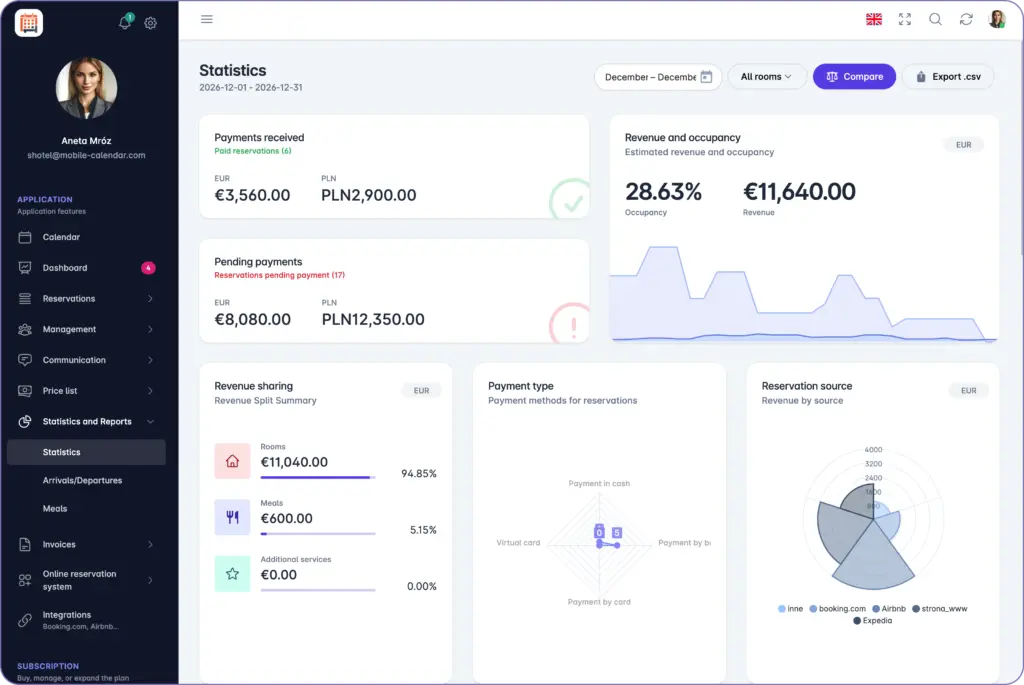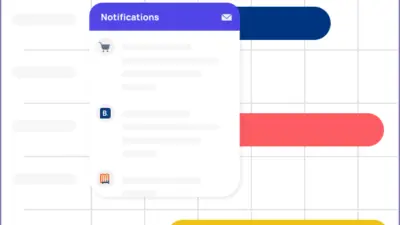Modern accommodation management requires access to up-to-date data and analysis. Without proper statistics, hotel owners and managers face numerous difficulties that can negatively impact their business. Manual reporting consumes valuable time and the lack of access to detailed data hinders strategic decision-making.
Do you know that feeling when you need to make a quick decision about prices, room availability or hiring additional staff, but lack reliable data? Working 'on a hunch' can lead to unnecessary waste and chaos in your organisation.
Basic statistics for hotel management:
1. Occupancy - a Key Measure of Success
Occupancy is one of the basic indicators in the hotel industry. It reflects the percentage of occupied rooms in a given period, which directly affects the profitability of a property. By analysing occupancy, managers can understand when they are dealing with too many vacant rooms (which suggests the need for marketing action).
2. RevPAR - Accelerating Financial Performance
RevPAR, or revenue per available room, is one of the most reliable financial indicators in the hotel industry. Its calculation allows managers to assess the profitability of a property's rooms, taking into account both pricing and occupancy. As an indicator, RevPAR provides a comprehensive picture of a hotel's operational efficiency and helps in making strategic decisions on pricing and promotions.
3. Average length of stay (ADR)
The average length of stay of guests is also an important indicator. If a hotel notices that guests most often stay for 1-2 nights, it can adjust offers to focus promotions on longer bookings. In turn, analysing this statistic at different times of the year can help determine seasonality and appropriate promotions.
How can a mobile-calendar help with hotel management?
Mobile-caledar offers comprehensive solutions to help accommodation managers realise the full potential of their business. With advanced analytical functions and intuitive interface, mobile-calendar provides detailed financial data, occupancy analyses and many other indicators that enable better business decisions.

Financial information: Gain full insight into your facility's revenue, helping you to better manage your finances and make informed decisions to increase profitability.
Comparison of statistics: Compare occupancy rates over different periods, analyse changes and draw conclusions to optimise your marketing strategy.
Report generation: Quick access to arrival, departure and feeding reports enables efficient management of the facility and better planning of guest services.
Summary
Accommodation owners should manage statistics, as this allows for better business decisions. By analysing data such as occupancy, revenue or guest feedback, it is possible to optimise prices, promote services at appropriate times and increase profitability.




